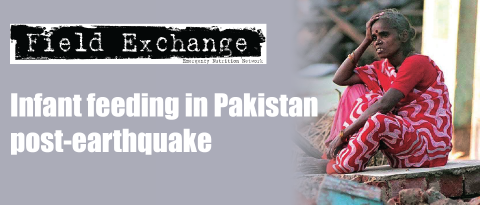ENN/SC UK investigation of impact and effectiveness of SFPs

A SFP as part of a community therapeutic care programme in Niger
The ENN and Save the Children UK (SC UK) have just begun a joint research study to assess the impact and effectiveness of emergency supplementary feeding programmes (SFPs). The rationale for the study is that there has been no credible overall assessment of the impact or effectiveness of these programmes. Critics of emergency SFPs have raised questions about their appropriateness in the absence of adequate general rations (a frequent occurrence during emergencies) and the relative cost-inefficiency of setting up a separate infrastructure from the general ration programme in order to allocate small quantities of food to vulnerable groups. Furthermore, there are many examples of emergency SFPs that have failed to meet SPHERE targets due to factors like insecurity, difficult terrain and resulting poor access, and staffing problems. A recent review of published evidence for impact of SFPs in emergencies between 1980 and 2004 involving five data bases revealed that only a minute percentage of programmes have been rigorously evaluated in terms of impact with findings published.
The ENN/SC UK study will include targeted and blanket SFPs in acute and chronic emergencies with a main focus on children under five years of age. A minimum of 156 SFPs implemented by 15 agencies over the past three years will be included in the review. These programmes have been implemented in Africa (19 countries), Central Asia (2 countries), South Asia (2 countries), Far East Asia (1 country), and Central and South America (3 countries). Aconsortium of agencies is providing funding for the work.
There are four primary objectives for the study:
Objective 1: To describe the characteristics of emergency SFPs implemented in recent years (targeted and blanket), e.g. objectives, protocols, adherence to current guidelines, type of population served and characteristics of population, etc. Blanket and targeted programmes will be presented separately. Where possible, major events that affected the programme during implementation will be described, e.g. breaks in food aid pipeline, attacks, absence of staff, overcrowding, etc.
Objective 2: To assess the effect of emergency SFPs on patients enrolled in the programmes (efficacy of the protocol) and the organisation and contextual factors impacting outcome. Outcomes will include recovery rates, rates of weight gain, and duration of stay in programme. Attendance and defaulter rates will also be considered.
Objective 3: To assess the impact of emergency SFPs in the population (effectiveness of the programme) and the contextual factors influencing impact. The key indicator for this will be malnutrition and mortality rates in the population as well as programme recovery rates and coverage.
Objective 4: To describe and compare the costs of SFPs in different emergency contexts and to compare these costs with other types of intervention with similar objectives, e.g. expanded general ration programmes.
It is hoped that the study will be completed and written up by September 2006. Findings will be summarised in Field Exchange.
For further information contact Frances Mason, SC UK, email: f.mason@savethechildren.org.uk or Jeremy Shoham, ENN, email: jshoham@easynet.co.uk.
1Duffield. A et al (2004). Review of the published literature for the impact and cost-effectiveness of six nutrition related emergency interventions. Report prepared by the ENN, December 2004. Available in print from the ENN or online at http://www.ennonline.net
Imported from FEX website


